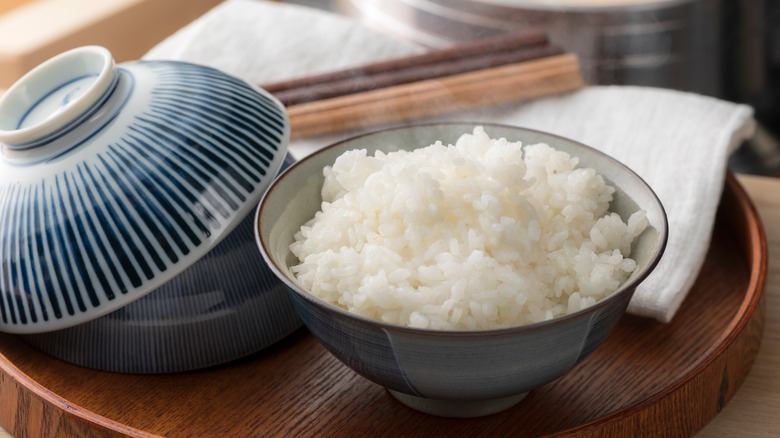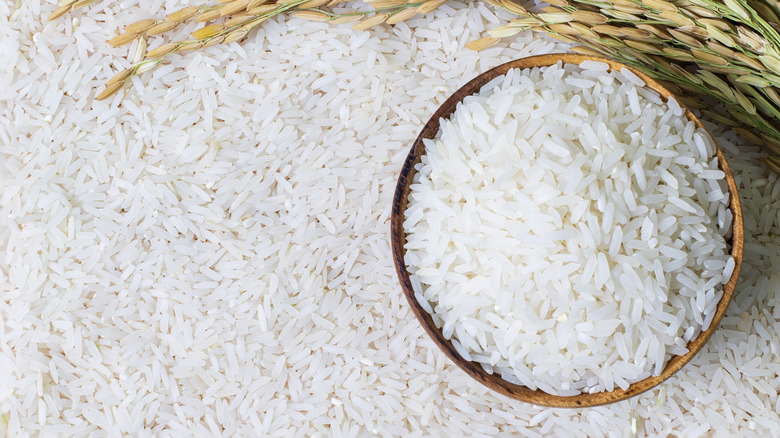Why It's A Mistake To Follow Recipes For Cooked Rice
We all know the frustrations of following a recipe for rice to a T and still ending up with a mushy or undercooked mess. Rice is one of the trickier staples to cook, as it requires precise measurements and different levels of water depending on the rice. That means for most people, you put your trust in the experts — the people who actually wrote the recipe — to guide you to fluffy, perfectly-cooked rice. The problem is there are no true universal rice experts. The reason is that recipes, even extensively tested ones, are created in highly controlled environments that are very different than the conditions you are working with in your kitchen. In fact, not just recipes from different sources, but even directions on the rice container itself can be completely wrong.
Cooking rice is about one simple, but difficult concept: Absorbing the right amount of water. Two people cooking the same rice in the same amount of water can get different results because they're cooking at different altitudes or they have a pot with a less tight sealing lid, meaning more water will evaporate and less will be absorbed by the rice. Rice is pretty sensitive to small changes in liquid, so even a little extra evaporation could mean hard, undercooked rice.
Figure out the best rice-to-water ratio for yourself
The reality of rice is that you are going to have to be the one to do your own tests, because even among "experts," those variables mean rice-to-water ratios are not agreed upon. Look at any recipe online and you'll find wild variations in suggestions for the exact same types of rice. For long-grain white rice, you can find recommendations from as low as one and a third cups of water for each cup of rice to as high as 2 cups of water. In the world of rice, that's a massive difference, so you are probably going to need a couple of tries to figure out the right ratio for each type of rice.
Working with plain rice to eliminate other variables, try cooking your favorite types of rice with water, starting at one and a half cups of water per 1 cup of rice. If it comes out mushy, that's too much water, and if it's dry or burns, it was too little. Adjust by a quarter cup and try again. If you are scaling up the amount of rice you are making from one cup, know that a smaller percentage of your water evaporates the more rice you cook, so larger test batches should use a lower water ratio. Once you know the right ratio for your situation you can easily adjust rice recipes to your own kitchen.

